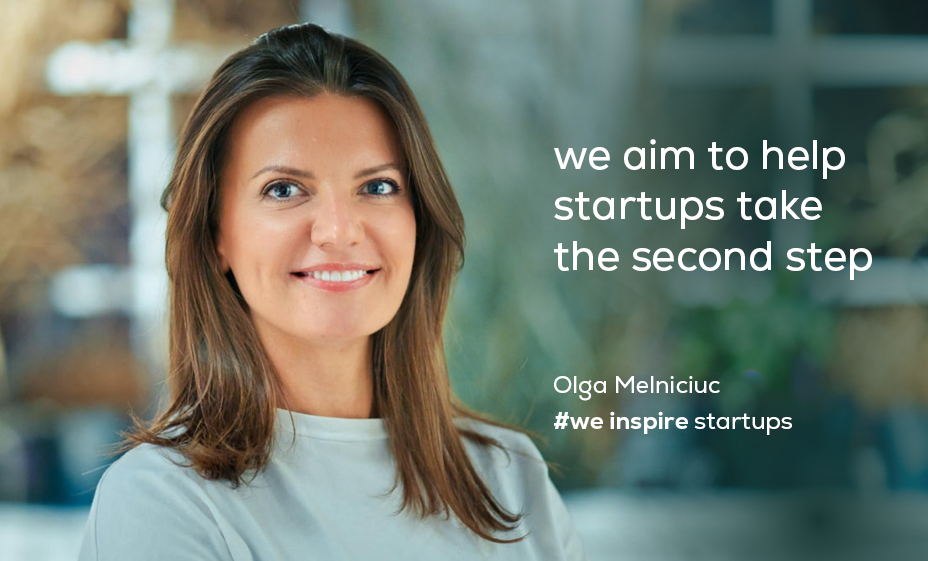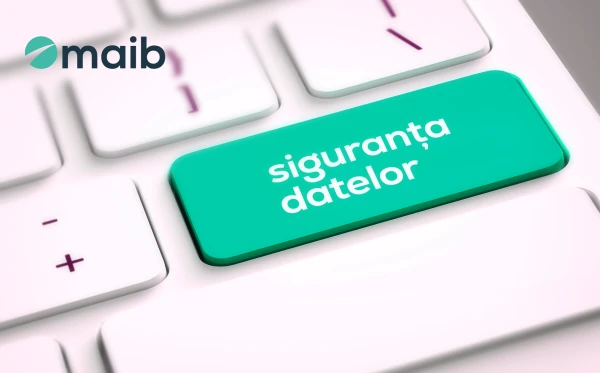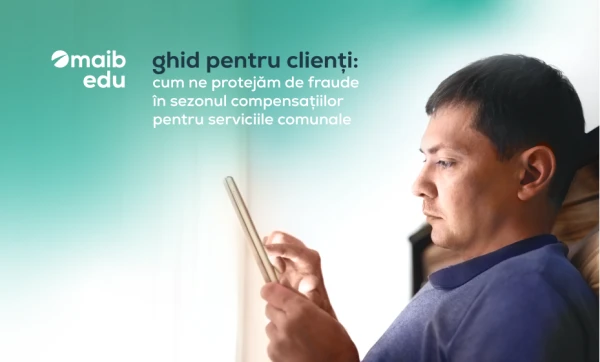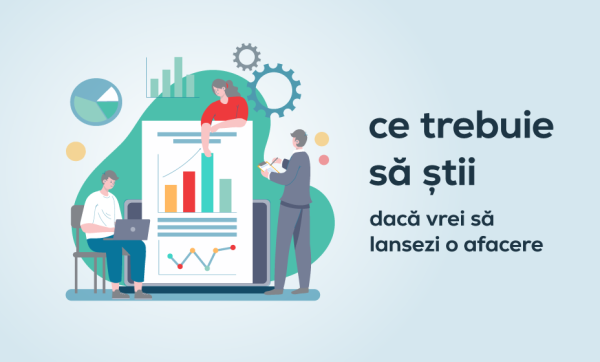In the heading dedicated to entrepreneurial education, supported by maib edu, Olga Melniciuc, CEO of Startup Moldova, spoke with journalist Pavel Zingan about the first steps in entrepreneurship, offering many useful tips for start-ups
Olga, hello. I think I am the first journalist to interview you after taking over the leadership of Startup Moldova.
Since January 15, I am the executive director of Startup Moldova, and indeed, this is my first interview in the new position, although it is far from the first with you, Pavel.
Startup Moldova is a well-known organization, and in recent years, as the founder and director of Investitii.MD, you have collaborated intensively with Startup Moldova. How do you see the organization?
Startup Moldova has the role of ambassador, it is a representative of Moldovan start-ups or, to say it even more simply, it is a door through which investments in start-ups can come to our country.
And as a door to go internationally?
Absolutely. We need to help start-ups grow, get investments, and become known worldwide. That’s how I see the role of Startup Moldova and mine, as a leader.
You are a well-known business woman. Your company is growing every year. Why did you decide to go to Startup Moldova?
The desire to grow professionally and personal curiosity for an unexplored field. I already have experience in managing my own company (Investitii.MD), and within Startup Moldova I want to achieve what is possible only here: to attract investments, help a generation of innovative entrepreneurs reach the international level and create a development fund of start-ups. Startup Moldova is the place where I will be able to achieve these goals. A new field of opportunities?
Yes, it is true. There are still no well-trodden paths in the field of start-up businesses in Moldova. I first got to know start-ups and their ecosystem in 2019, in the USA. Some of the knowledge I took in the states I implemented in my business, but now I have the opportunity to implement all the knowledge. And, for that I already have everything I need - experience, network, partners, understanding how business processes are built and knowledge of how the start-up ecosystem works. In addition, I have to mention the excellent contribution of the previous CEO of Startup Moldova, Natalia Bejan. Startup Moldova can already be presented as a successful case of a well-functioning organization.
The topic of our interview is about business education. I noticed that the notion of start-up is used incorrectly by many entrepreneurs. More and more often, any newly established business is called a start-up. Two girls started making cakes - this is a start-up. Everyone knows, I want to support any business. But, I am also in favor of clear definitions and wording.
From our point of view, a start-up is a company or a team that develops, first of all, an innovative solution. It does not necessarily have to be an IT solution, but at its core there must be a digital center, which will allow this project to later scale to international markets as well.
Is scalability a must-have feature for a startup?
It is a must. The goal of growth is the very essence of any start-up.
What about "exit"? Should a start-up necessarily be built as a business for sale?
I would not be so radical. What is certain is that a start-up must have an investment strategy to ensure growth and expansion. As for the fact that the owners of a start-up must necessarily get out of it later, in practice there are many variants. Perhaps the start-up will be bought by international investors, and the founders will remain as its managers. But, as a rule, the very prototype of founders is not that of classic entrepreneurs, they are people oriented towards launching a new project, captivated and very passionate about new ideas.
Now the definitions are clear. The next question - how can Startup Moldova help Moldovan start-ups? And what advice would you give to those opening a start-up?
Speaking about the start-up industry in Moldova, I would like to mention that a whole ecosystem has already been created. There are accelerators, there are pre-acceleration programs, universities train IT specialists with a start-up mindset. There are investors, there are two groups of business angels and there is Startup Moldova, which promotes them all. For those who are just starting out, my advice is to go to one of the hackathons, which are quite often organized, and for a few days to test yourself in this atmosphere - the atmosphere of ideas, prototyping products, communication between founders. Here's another piece of advice I want to give - if you want to create a start-up, look firstly for a co-founder or even more. The strength of a start-up lies in bringing together founders with different qualities and skills.
How do you see the involvement of banks in supporting Moldovan start-ups?
As for loans, this is excluded. A start-up is, by definition, a risky new project, and its financing relies on other mechanisms. But, in terms of other types of support for start-ups, I would like to mention maib, which has already created such products. These are facilities for opening an account, consulting and special conditions for settlement services. After all, the same start-up founders, given that they inevitably have to generate a lot of international contacts, are also interesting for the bank as active and dynamic customers. In addition, banks can themselves become customers of start-ups. There are many examples of how collaborations between banks and start-ups have led to innovation in the Fintech industry. Such partnerships certainly increase the competitiveness of its players.
Maybe in the future...
What awaits us in the future?
Abroad, there are banks that set up their own start-up investment funds and even sector funds. I hope that in this way the Moldovan start-up industry will one day become interesting for Moldovan banks as well.
What are Startup Moldova's plans for the near future?
On March 14, we will hold the Startup Moldova Summit. In terms of the number of guests, investors and events, it is twice the size of the Summit in 2023. That is if we talk about the concrete dates. But there is one more direction in which we start working from now on.
What is it about?
In recent years, as I said, Moldova has already developed an ecosystem for start-ups. But everything is focused on the first step: the idea stage and the MVP. The second step involves expansion: entering foreign markets and attracting investors. And, at this stage, there is still much work to be done. A start-up, even if innovative, is fundamentally a business and organizing product sales into new markets and being able to grow quickly is the key to success in scaling up.





